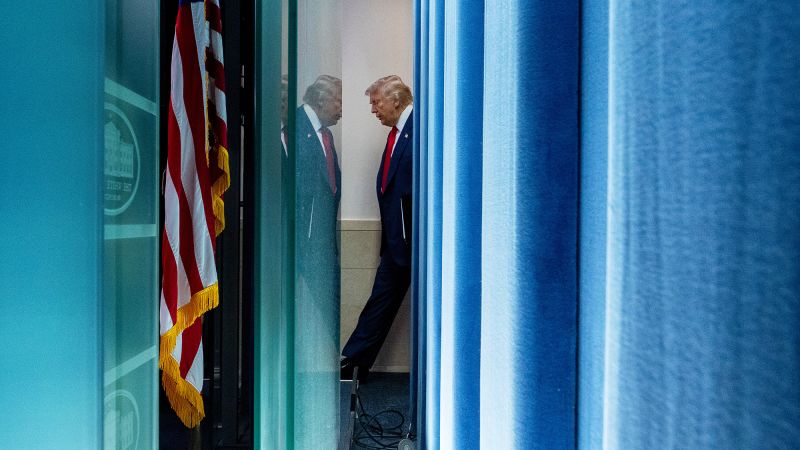In a recent analysis published by CNN Business, significant concerns have arisen regarding President Donald Trump’s evolving approach to economic management, which many argue marks a departure from traditional American capitalism towards a more centralized model reminiscent of authoritarian regimes. The unfolding situation encapsulates a series of controversial actions taken by Trump that many experts argue threaten the foundations of free-market capitalism in the United States.
The narrative begins with Trump’s dismissal of the chief of the Bureau of Labor Statistics (BLS), EJ Antoni, a move critiqued for its apparent political motivations following a disappointing summer jobs report. Antoni, a figure associated with the far-right and lacking relevant experience in economics, was seen as someone who could align the BLS’s output with Trump’s narrative. The president’s disdain for the BLS’s reporting comes amidst his expressed dissatisfaction with the agency’s depiction of economic conditions, raising alarm bells among economists and public officials alike.
Further complicating the landscape, Trump has threatened legal action against Federal Reserve Chair Jerome Powell and has publicly demanded a revision of economic statistics that do not align with his expectations. This level of aggression, critics argue, compromises the autonomy of key economic institutions and undermines public trust in government data. Such strident actions reflect a significant deviation from historical practices that prioritize independent economic assessments to inform policy.
As Trump pursues a strategy of undermining respected economic institutions, numerous alarming directives and comments have surfaced. For instance, he suggested suspending the monthly jobs report, claiming it may be inaccurate, a notion that provoked immediate backlash given the established integrity of BLS processes that have evolved over decades. Economists emphasize that such rhetoric can have long-lasting implications, potentially leading business leaders to question the accuracy and reliability of U.S. economic indicators.
In this historical context, the drastic measures initiated by Trump illustrate a broader tendency toward a control-oriented approach to the economy, akin to certain facets of China’s state capitalism. Such a system merges capitalism with significant government influence, contrasting sharply with the American ethos of free enterprise and minimal government intervention. Observations suggest that rather than America transforming to resemble China’s liberalized economy, the U.S. may be experiencing a shift towards an economic framework that mimics authoritarian state practices.
This characterization of the current administration’s approach is supported by economic experts who argue that the manipulation of data and interference with economic institutions can significantly distort the reality of the nation’s financial landscape. The ramifications of such strategies could degrade the precision and effectiveness of economic decision-making, particularly as it relates to forecasting and investment decisions.
The historical implications of data manipulation in economics are well-documented, with case studies such as the Argentine government’s attempt to suppress inflation data providing a cautionary tale. This led to a loss of credibility among investors and a detrimental impact on the country’s financial stability. While the U.S. is not at this level of economic distortion yet, the concern persists that Trump’s attempts to exert control can erode the public’s trust in the federal economic reporting infrastructure.
Moreover, critiques of Trump’s management style hinge on his preoccupation with public perception and optics, a trait that has characterized his leadership since taking office. From disputing crowd sizes at his inauguration to his equivocation during the early stages of the COVID-19 pandemic, Trump’s focus has seemingly shifted from enabling transparent governance to crafting a narrative that serves his interests. This pursuit of favorable optics, particularly in regard to economic performance, may inevitably contribute to a broader trend towards increased governmental oversight of economic indicators—a trend that stifles objective data analysis and threatens the principles of a free-market economy.
Overall, the trajectory laid out in the ensuing weeks, as influenced by Trump’s policies and rhetoric, suggests an unsettling shift in American economic governance, highlighting the precarious balance between state intervention and market autonomy that sits at the heart of the nation’s economic identity. This situation not only warrants close observation but necessitates critical discourse on the implications of such administrative strategies on the American populace and the economic framework as a whole.











